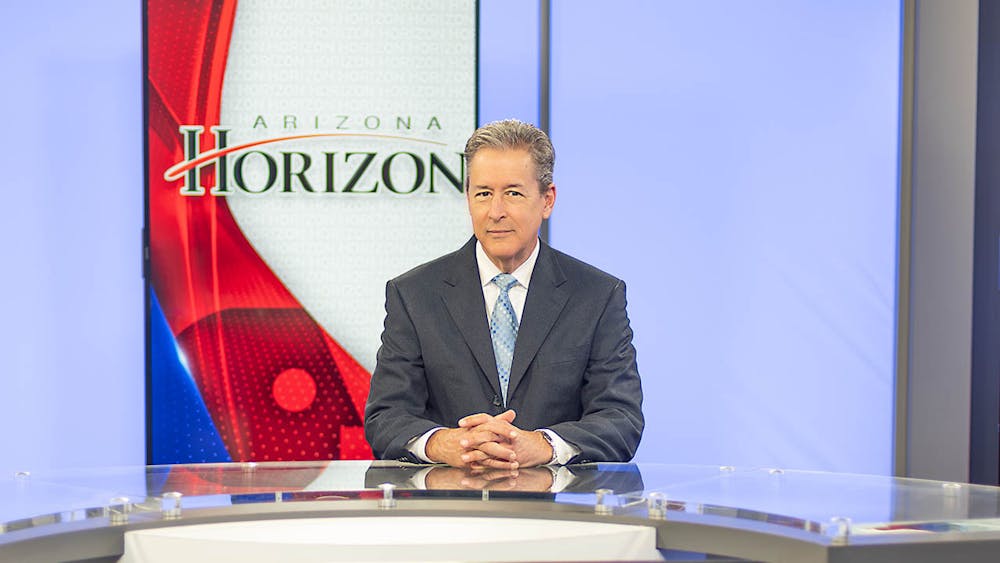Although the fiery U.S. Senate candidates Mark Kelly, Blake Masters, and Marc Victor all made their marks at the October 6 Arizona Senate Debate, moderator Ted Simons’ performance was a mixed bag.
On one hand, Simons’ overall approach had significantly improved from his previous lambasting of Abe Hamadeh in the Attorney General Debate. During the Senate debate, Simons managed to neutralize his political biases and minimize the amount of time he spoke – both efforts that made the evening go smoothly. On the other hand, a more passive approach may have let Simons lose control of the debate at several key moments.
It’s likely that the current political climate in Arizona factored heavily into his decisions as a moderator. As Arizona gets increasingly more polarized, seeing that both Republicans and Democrats are on the edge of their seats for the upcoming election, it’s now more important than ever for moderators to strive for impartiality.
Given that Arizona is a swing state, voters are on the fence about their candidates. In this context, Simons’ passive approach to moderating the Senate debate actually makes sense. It’s a race that will determine the political majority in the national Senate, stakes so high that Simons needed to perform as impartisan as possible in order to avoid accusations of skewing public favor for either party. With PBS’s recent scandal concerning Kari Lake and Katie Hobbs, it’s become a reasonable fear for media figures.
Overall, Simons’ moderating was well-intentioned. Simons interpreted his moderator role as a clarifier for the audience, steering the conversation in a way that gave Arizona voters the most information about the candidates.
One argument is that he should have stepped in when Masters and Kelly repetitively badgered each other over immigration and inflation, or made more of an effort to include the libertarian candidate Victor. But Simons probably viewed those actions as compromising his neutrality.
In an era when mass misinformation and partisan polarization have rapidly eroded people’s trust in the media, he simply behaved as cautiously and pragmatically as he could, even if it had its drawbacks.

